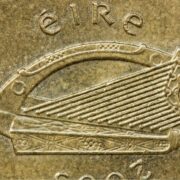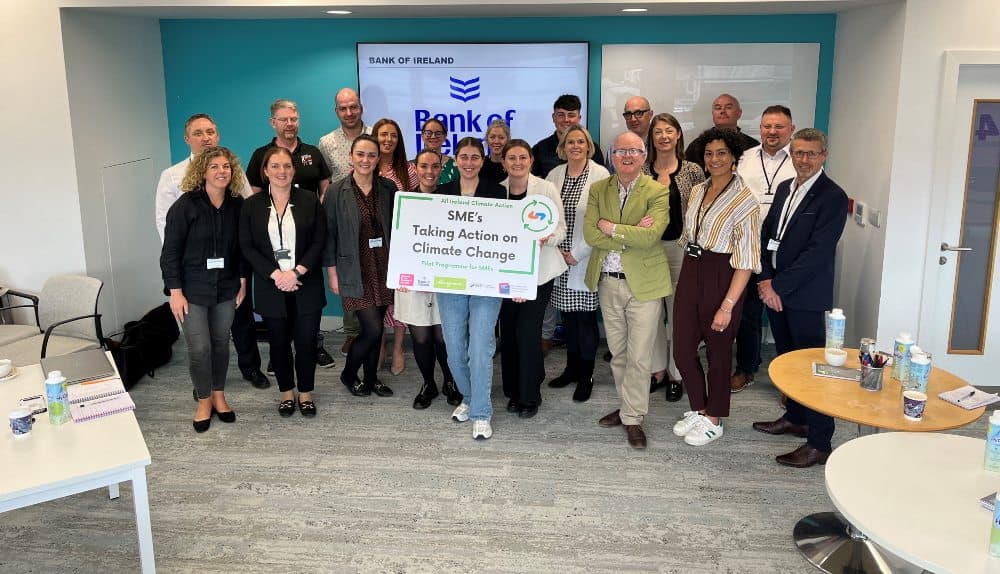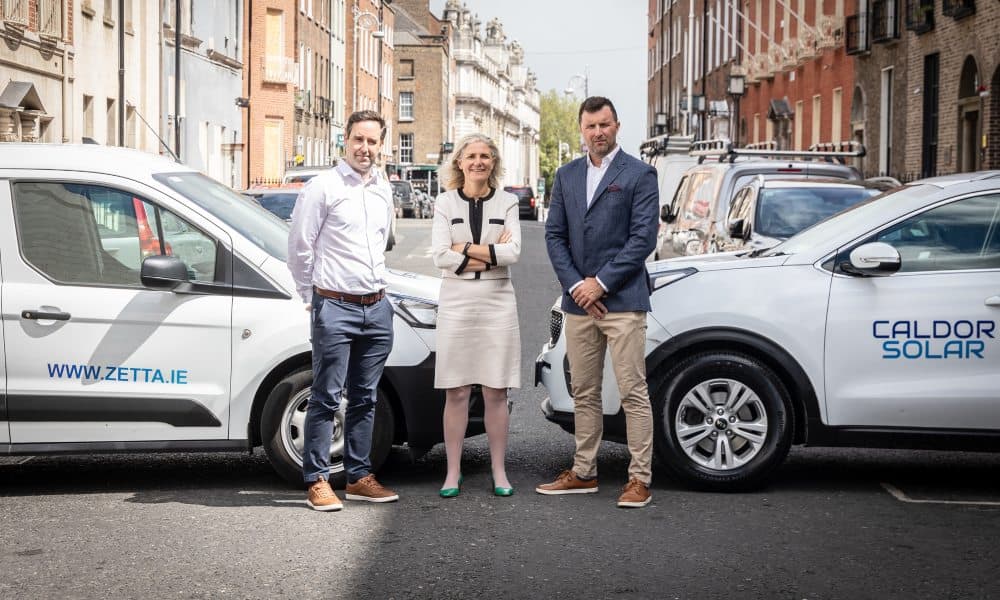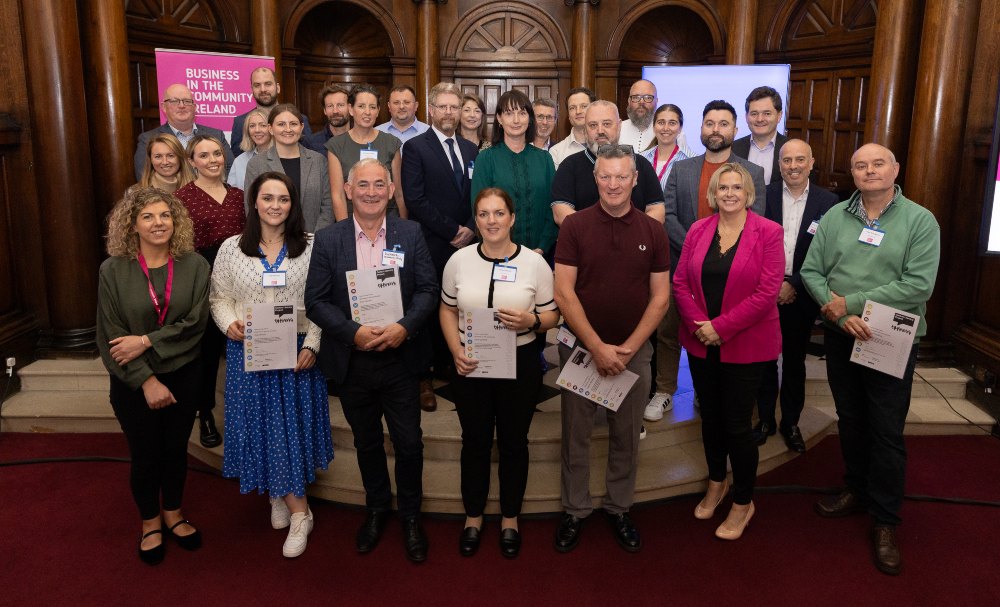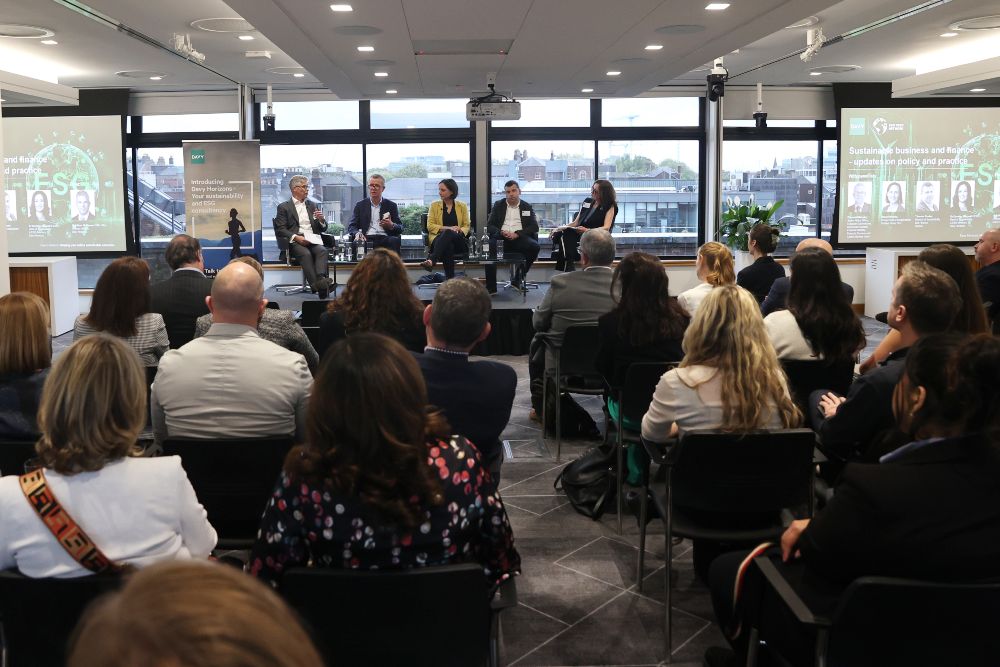Podcast Ep 229: Irish businesses who took part in a decarbonisation pilot organised by Business in the Community, talk about their experiences and focus for the future.
Recently 22 Irish SMEs graduated from a decarbonisation pilot, which was a collaboration between Business in the Community Ireland, Bank of Ireland, Musgrave Group and SSE Airtricity. We talk to some of the SMEs who graduated from the programme about what they learned and how they will go about decarbonising their businesses.
The programme engaged a selection of their supply chain SMEs, encouraging a deeper understanding of climate change, carbon reporting, and supply chain decarbonisation.
“The SME community in Ireland are the heartbeat of the Irish economy”
The SMEs involved in the programme benefited from an in-depth series of training sessions, beginning with in-person accredited carbon literacy training and followed by online workshops.
Training included understanding the role of a business in addressing the climate crisis, measuring carbon footprints and complying with reporting requirements for Scope 1, 2 and 3 emissions; and developing bespoke climate action plans.
The training also included accessing and interacting with a host of supports already available for SMEs in Ireland such as the Climate Toolkit 4 Business and the SME Climate Hub. The initiative was delivered in partnership with Business in the Community Northern Ireland, whose similar programmes have reached over 200 SMEs.
At the tip of the SME decarbonisation spear
Gavin Kelly, CEO of Corporate and Commercial Banking at Bank of Ireland, spoke with ThinkBusiness about the imperative of educating SMEs on how to decarbonise their businesses.
“The SME community in Ireland are the heartbeat of the Irish economy,” Kelly said. “And for each of them starting on this journey, however small those steps are, it is important for us to reduce the overall carbon output in the country and hit our targets over the next five years and beyond that.
“What this programme is about is education. It’s about helping SMEs to understand their carbon footprint, helping them to understand the steps that they can take, however, small they are.”
In the ThinkBusiness Podcast on the graduate firms, Michael Halton from Kent Stainless and Ruairí Harpur from Wallace’s SuperValu described how their businesses are embracing sustainability and how the pilot might support their efforts. Orna Connick from NVD Trading spoke about the various initiatives the business has taken to reduce its carbon footprint. And Grainne Ross from The Dylan Hotel in Dublin spoke about the importance of how being sustainable helps other Irish businesses too.
Bank of Ireland’s director of Sustainability Colette Shirley spoke to me about how legislation and new regulations for larger businesses are trickling down to impact on smaller businesses who need to act in order to remain in the supply chain.
“Our larger businesses are being asked to report along the lines of CSRD which means they need to collect data from their supply chain. So they are asking these questions of their customers, their SMEs and they’re putting them into tenders.
“We’re trying to raise awareness among the smaller businesses to think about looking around the corner, how you can prepare your business to be sustainable going forward and how that can help you to keep yourself elevated within that supply chain.
“One of the lessons from today is carbon literacy. Make sure you understand what carbon you are producing, and then think about how you can decarbonise. How do you ensure that it is going to be a meaningful, tangible progress that you can demonstrate to your key customers in a way that they will find valuable because data is important to them for their reporting obligations.”
Finally we spoke to Feena Kirrkham from Business in the Community about the success of the pilot and what the future holds for the programme.
She said it is important for organisations to realise that is a new of doing business, even if they have been in business a long time. “It’s about supporting the participants in realising how to make the business case and recognise the opportunities.
“It’s about thinking long term and investing in supplier engagement now.
“You are not going to see the benefit today, but if you start working with your supply chain, engaging with them meaningfully, it could take you one-to-three years to actually get through the whole value chain. But it will be three-to-five years statistically before you see the reduction inyour carbon emissions.
“Companies who are investing now are over six times more likely to achieve their climate transition plans aligned with Net Zero,” Kirrkam said.
-
Bank of Ireland is welcoming new customers every day – funding investments, working capital and expansions across multiple sectors. To learn more, click here
-
Listen to the ThinkBusiness Podcast for business insights and inspiration. All episodes are here. You can also listen to the Podcast on:
-
Spotify
-
SoundCloud
-
Apple

